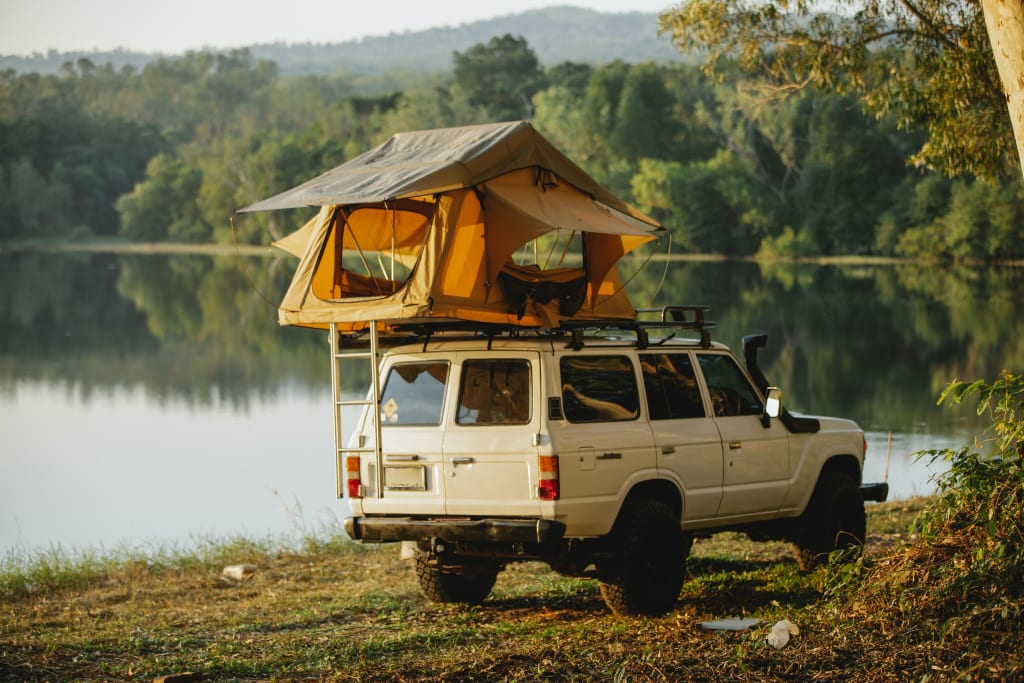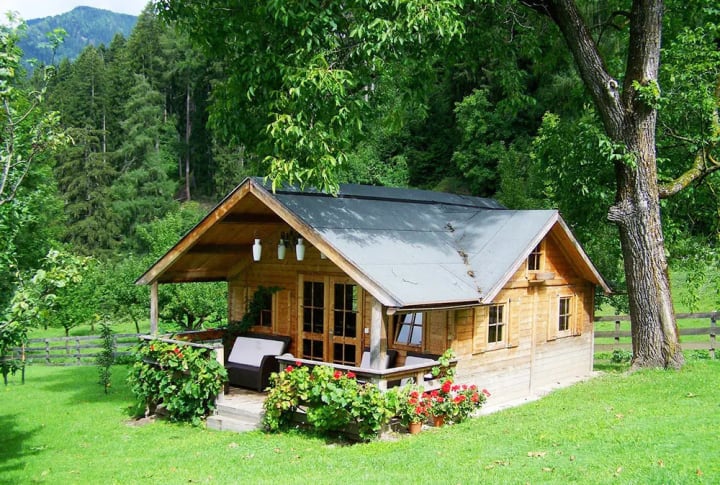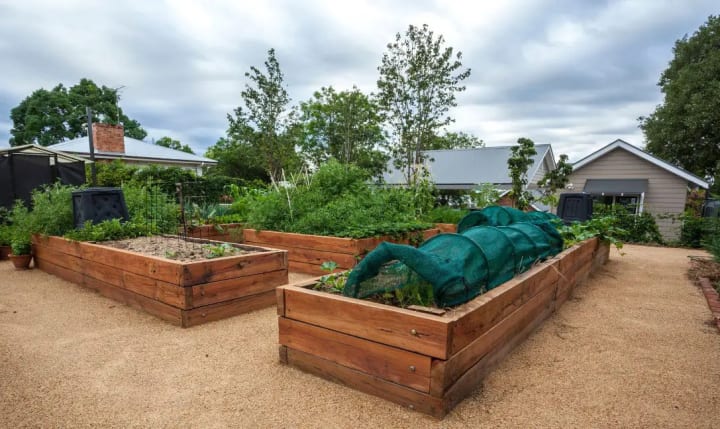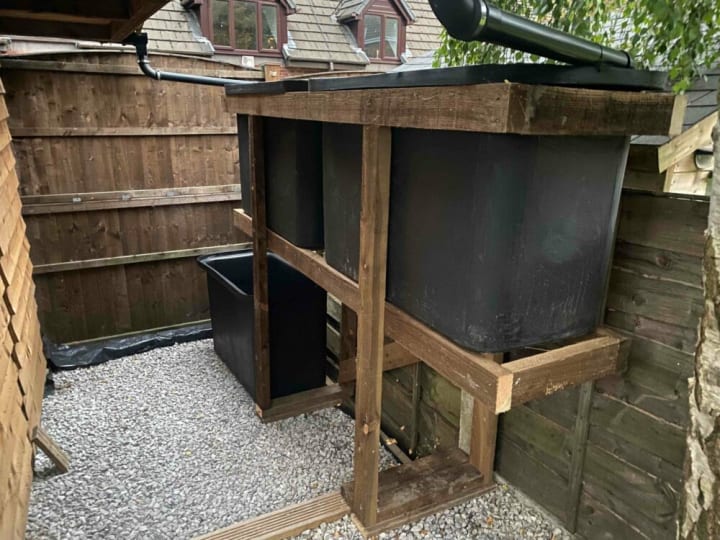
Many people have been enthralled by the idea of living sustainably and in harmony with the environment. Living off the grid and away from the bustle of the city has grown significantly in appeal in recent years. This essay examines the remarkable journey of off-the-grid self-sustainability, emphasizing its advantages, crucial elements, difficulties, and the changing lifestyle it offers.
1. Introduction
Off-grid living means developing a self-sufficient way of life that doesn't rely on outside sources for things like energy, water, and other requirements. With this option, people can cut ties to established structures and choose a more environmentally friendly and sustainable way of life. This way of life appeals to many because it promises a stronger bond with nature, greater independence, and a smaller environmental impact.
2. Benefits of Living off the Grid
2.1 Environmental Impact and Reduced Carbon Footprint
People make a great contribution to the preservation of the environment by going off the grid. Their dwellings are powered by renewable energy sources including solar and wind power plants, which lessens their reliance on fossil fuels and greenhouse gas emissions. Off-the-grid living also promotes eco-friendly behaviors such as trash reduction and careful consumption.
2.2 Increased Self-Reliance and Independence
Living off the grid enables people to become more independent. They become less reliant on outside resources by producing their own energy, gathering rainwater, and cultivating their own food. A sense of empowerment, resiliency, and freedom are fostered by this newly discovered independence.
"Transform your backyard into a self-sufficient oasis! Discover the secrets of sustainable living, grow your own food, harness renewable energy, and embrace a greener lifestyle. Join The Self-Sufficient Backyard community today and start creating a more resilient and eco-friendly future for yourself and the planet. Together, we can make a difference!"
2.3 Financial Savings and Reduced Expenses
Over time, living off the grid might result in significant financial savings. Although sustainable infrastructure may need a larger initial investment, the long-term advantages exceed the expenses. By producing free energy and collecting rainwater, off-the-grid living is a financially sound option. Utility costs are also eliminated or greatly reduced.
3. Essential Components of Off-the-Grid Living
To achieve self-sustainability, certain components are crucial to an off-the-grid lifestyle:
3.1 Sustainable Energy Sources
Electricity is produced through the power of nature through the use of solar and wind energy. There is less reliance on conventional grids thanks to these clean, dependable renewable energy sources.
3.2 Water Collection and Filtration Systems
Living off the grid calls for effective water management. Systems for collecting and storing rainwater are used for a variety of purposes. Water filtration systems also guarantee the accessibility of pure and secure drinking water.
3.3 Efficient Waste Management and Recycling
Living off the grid requires effective trash management. A sustainable lifestyle includes recycling procedures, composting organic waste, and reducing waste production.
4. Building a Self-Sustainable Home
Creating a self-sustainable home involves careful consideration of various factors:

4.1 Design Considerations for Energy Efficiency
It is essential to optimize the home's design for energy efficiency. Utilising insulation, energy-efficient windows, passive heating and cooling methods, and orienting the home to maximize natural light all help to reduce energy use.
4.2 Using Natural and Eco-Friendly Materials
Environmental effect is reduced when natural and eco-friendly materials are used in construction. A healthy living environment is guaranteed by materials like bamboo, repurposed wood, and non-toxic paints and finishing.
4.3 Implementing Smart Technology for Resource Optimization
Resource management is made possible by integrating smart technology platforms. Energy monitoring tools, automated lighting controls, and smart thermostats all contribute to waste reduction and energy efficiency.
5. Food Production and Permaculture
Growing food sustainably is a fundamental aspect of off-the-grid living:
5.1 Establishing a Vegetable Garden
Establishing a vegetable garden guarantees a consistent flow of fresh produce. Companion planting and soil enrichment are two permaculture techniques that support biodiversity and long-term sustainability.

5.2 Composting and Organic Fertilizers
Kitchen scraps and garden debris can be composted to produce nutrient-rich soil additions. Organic fertilizers improve soil fertility without using hazardous chemicals, resulting in strong, plentiful crops.
5.3 Raising Livestock and Poultry
Raising animals and birds can be profitable for people who have the necessary space and money. In order to promote self-sufficiency, goats or cows supply milk and meat in addition to providing eggs and natural pest management.
6. Water Sustainability
Efficient water management is critical for off-the-grid living:
6.1 Rainwater Harvesting Systems

A dependable source of water can be obtained by collecting rainwater using roof collection systems and storing it in tanks. Along with other non-potable uses, it can be used for cleaning, irrigation, and other tasks.
6.2 Greywater Recycling and Reuse
Greywater from sinks, showers, and laundry can be treated and reused to cut down on water waste. Systems that use greywater filter and redirect water for irrigation reduce the need for freshwater.
6.3 Conservation Practices for Water Efficiency
Utilizing water-saving techniques, such low-flow fixtures and water-efficient appliances, aids in water conservation. Further reducing water usage is the adoption of conscious practices such taking shorter showers and quickly addressing leaks.
7. Managing Energy Consumption
Efficient energy use is key to off-the-grid living:
7.1 Installing Energy-Efficient Appliances
Electrical energy usage is decreased by using energy-efficient equipment. Low-power electronics, LED lighting, and products with the Energy Star label all help save energy.
7.2 Using Alternative Heating and Cooling Methods
Reduce dependency on conventional energy sources by investigating alternative heating and cooling technologies, such as solar heating, geothermal systems, or wood-burning stoves.
"Break free from the grid and power your life with the Ultimate OFF-GRID Generator! Experience true independence with reliable, renewable energy wherever you go. Say goodbye to blackouts and hello to unlimited power. Join the off-grid revolution and secure your energy future today. Don't wait, unleash the power of freedom!"
7.3 Monitoring and Optimizing Energy Usage
The best use of resources is achieved by regularly tracking energy usage and identifying opportunities for improvement. Conscious energy-saving behaviors, such as turning off lights when not in use and using power strips to avoid standby power, have a big impact.
8. Off-the-Grid Challenges and Solutions
Living off the grid comes with its own set of challenges:
8.1 Potential Limitations and Adjustments Required
Living off the grid could call some modifications and tradeoffs. Having limited access to some conveniences, unpredictable power, and adjusting to a simpler lifestyle can be difficult but rewarding.
8.2 Developing Problem-Solving Skills
The ability to solve problems is frequently necessary when living off the grid. It becomes crucial to have the ability to troubleshoot equipment, come up with creative solutions for energy or water-related problems, and adjust to changing conditions.
8.3 Connecting with Off-the-Grid Communities for Support
Participating in off-grid groups offers opportunity for sharing information and vital support. Online communities, in-person events, and workshops provide opportunities to meet like-minded people, share ideas, and gain knowledge from one another's experiences.
9. Embracing a Sustainable Lifestyle
Living off the grid is a transforming lifestyle, not just a practical one:
9.1 Importance of Mindfulness and Conscious Choices
Living off the grid promotes mindfulness and deliberate action. Making sustainable decisions and being conscious of how our actions affect the environment help us live in harmony with nature.
9.2 Engaging with the Natural Environment
Living off the grid presents a special chance to reestablish contact with nature. The whole off-the-grid experience is enhanced by spending time outside, taking in the beauty of the surrounding landscapes, and developing a strong connection with nature.
9.3 Cultivating a Sense of Gratitude and Connection
Self-sufficiency encourages thankfulness for the resources that come from nature. A strong sense of connection to the Earth is engendered by appreciating the vitality of the sun, the sustenance of the land, and the clean water that comes from natural sources.
10. Conclusion
Off-the-grid self-sustainability is a fascinating journey towards embracing nature. Numerous advantages are provided, such as cost savings, enhanced independence, and environmental protection. People can build a self-sustaining home by include necessary elements like renewable energy sources, effective water management, and methods for growing food. Off-the-grid living has its difficulties, but with the help of supportive groups and the ability to develop problem-solving skills, it can be a wonderful experience. Adopting a sustainable lifestyle strengthens gratitude, the relationship with nature, and mindfulness. People who opt to live off the grid start an astonishing journey towards sustainability and peaceful cooperation with nature.
11. FAQs
11.1 Is living off the grid expensive?
A: Living off the grid initially requires an investment in sustainable infrastructure. However, over time, the savings on utility bills and reduced expenses can offset the initial costs, making it a cost-effective choice.
11.2 Can I live off the grid in an urban environment?
A: While off-the-grid living is more commonly associated with rural areas, it is possible to incorporate sustainable practices in urban environments. Utilizing renewable energy sources, conserving water, and growing food in small spaces are some ways to embrace self-sustainability in urban settings.
11.3 Do I need extensive technical knowledge to live off the grid?
A: While some technical knowledge can be helpful, it is not a prerequisite for living off the grid. Many resources, workshops, and communities are available to support individuals in learning and implementing sustainable practices.
11.4 Is off-the-grid living suitable for families?
A: Off-the-grid living can be a fulfilling lifestyle for families. It offers the opportunity to teach children about self-sustainability, environmental responsibility, and the importance of living in harmony with nature.
11.5 How can I transition to off-the-grid living gradually?
A: Transitioning to off-the-grid living gradually is a practical approach. Start by incorporating small changes such as energy-saving habits, rainwater harvesting, or growing herbs and vegetables. Gradually expand your self-sustainable practices as you become more comfortable and confident in your abilities.
Disclaimer: Please note that some of the links on this website are affiliate links. This means that at no additional cost to you, I may earn a commission if you click through and make a purchase. I only recommend products and services that I have personally used and believe will add value to my readers.
About the Creator
Aditi
I Love to Write, I hope you love to read






Comments
There are no comments for this story
Be the first to respond and start the conversation.